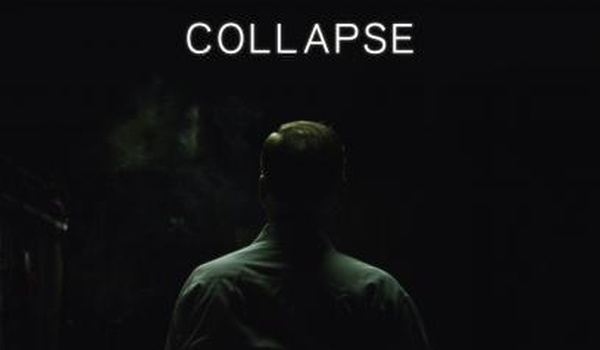


2 New Films: Occupy Love And Surviving Progress
Occupy Love: A Film That Captures The Global (R)evolution Of Compassion In Action Occupy Love will be a moving, transformative feature documentary that asks the question: how are the economic and ecological crises we are facing today a great love story? A profound shift is taking place all over the world. Humanity is waking up to the fact that the current system that dominates the planet is failing to provide us with health, happiness or meaning. The dominant paradigm is based on separation, as exemplified by the financial system, and the corporate emphasis of profits before people.” This crisis has become the catalyst for a profound transformation: millions of people are deciding that enough is enough – the time has come to create a new world, a world that works for all life. We have experienced an extraordinary year of change, from the Arab Spring, to the European Summer, and now, erupting into North America: the Occupy Movement. This is a revolution rooted in compassion, direct democracy, and shared power, as opposed to the ‘power over’ model of the corporate world view. The new story is one of Inter-dependence. Love is the movement.” Images and text taken from the film’s crowdfunding page on IndieGoGo For more information, updates and videos such as the one below, visit occupylove.org Surviving Progress Humanity’s ascent is often measured by the speed of progress. But what if progress is actually spiraling us downwards, towards collapse? Ronald Wright, whose best-seller, A Short History Of Progress inspired Surviving Progress, shows how past civilizations were destroyed by “progress traps” – alluring technologies and belief systems that serve immediate...
6 Must Watch Movies On The Global Crisis
If you haven’t been in a coma the last couple of years, then you might have noticed that the economy is crashing, food and gas prices are on the rise, and if people weren’t protesting in your city square, then they were protesting in one close by. However, as shown by the following 6 films, these instances and many others are tightly interconnected, and there are people looking into what’s causing them, where they’re leading humanity, and what can be done about them. Collapse The present & future forecast of the world’s problems, & how they’re forcing humanity into a new era, through the lens of Michael C. Ruppert Meltdown: The Secret History Of The Global Financial Collapse The 2008 financial crash and the events that followed revealed humanity’s tight global interconnectedness & interdependence Blind Spot Peak oil’s complex multi-crisis & its challenge upon a society rooted in generations of self-interest values Inside Job How the commonly held value of “maximize your profit” led to the 2008 financial crisis Earth 2100 Crises unfold integrally, not individually, exceeding national & disciplinary borders, & forcing humanity to adopt a global approach to solving them Zeitgeist: Moving Forward The realization of the negative influence of a society that prominently values individual self-interest upon human development & the need to build a new kind of social influence that promotes people’s...![Collapse [Film]](http://www.mutualresponsibility.org/wp-content/uploads/2012/09/michael-ruppert.jpg)
Collapse [Film]
I’m talking about a revolution that’s probably the hardest kind, the kind that takes place in the human soul, in the human mind. To be able to tear everything down, throw everything out, and start with a completely fresh paper and say… ‘okay, how do we solve this problem?’” — Michael C. Ruppert Collapse depicts the present and future forecast of the world’s problems through the lens of Michael C. Ruppert, investigative journalist and author of Confronting Collapse: The Crisis of Energy and Money in a Post Peak Oil World, who discusses the myriad crises humanity faces and how they are forcing humanity into a new era. Collapse – Theatrical Movie Trailer What Will You Do When Oil Runs Out? Starting with peak oil, Ruppert clarifies how oil is literally everywhere in a person’s life… All plastic is oil. Most paints, all pesticides are made from oil. Everything from toothpaste, to toothbrushes, is made from oil. There are seven gallons of oil in every tire. There is nothing anywhere, in any combination, which will replace the edifice built by fossil fuels. Nothing. Peak oil is probably now very easy to explain. Much easier than it was a long time ago. People have felt what $147 a barrel of oil feels like.” …and how the running out of oil in the world will force humanity to make very big changes: The end of oil is like end of the way of life. We’re hitting a new era.” What Will You Do When Money Runs Out? Ruppert continues by painting a bleak fade-to-black picture of the world as it heads into the...![Earth 2100 [Film]](http://www.mutualresponsibility.org/wp-content/uploads/2012/08/earth-2100_600.jpg)
